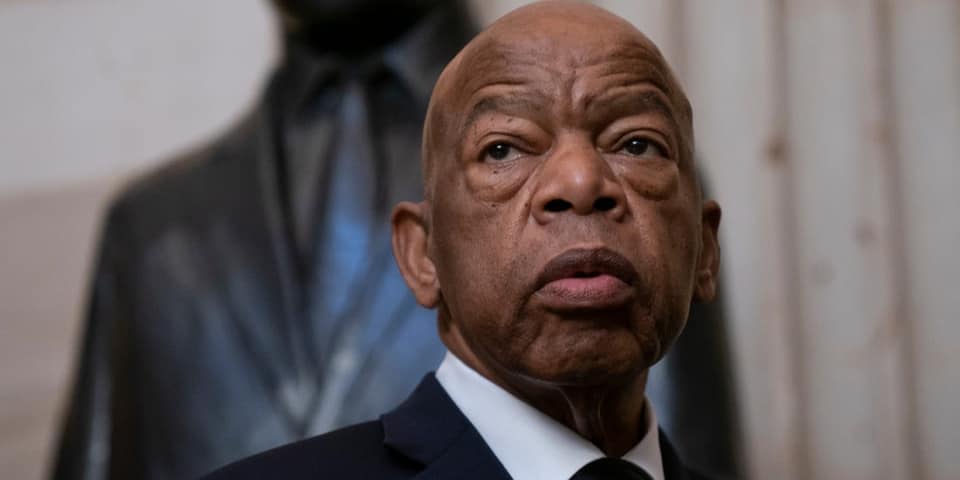
Congressman John Lewis dies at the age of 80
ATLANTA, GA — Seventeen-term Georgia Congressman John Lewis, often referred to as “a living saint,” died Friday night following a valiant battle with pancreatic cancer. Lewis was a member of the “Big Six” leaders of the 1960s civil rights movement and spent his life fighting for racial integration. Widely regarded on Capitol Hill as the moral compass of the Democratic Party caucus, the dean of Georgia’s congressional delegation was 80 years old.Former Ambassador Andrew Young said Lewis death left him “feeling like I did when we lost Martin Luther King.”
Lewis’ death comes only hours after the passing of another civil rights icon, C.T. Vivian and marks the end of an era of the generation that defeated the discriminatory and segregationist policies of the Jim Crow era in America’s Deep South to a new one to carry on what he called the “good trouble, necessary trouble” to bring about social change. One of the architects of the watershed 1963 March on Washington, Lewis was the sole surviving keynote speaker at the massive protest where the Rev. Martin Luther King Jr. delivered his iconic “I Have A Dream” speech.
Lewis, 23 at the time and the youngest of the rally’s keynote speakers, was more urgent.
“We want our freedom,” he told the crowd of 250,000 gathered on the National Mall on Aug.28, 1963, in the campaign against racial apartheid in America, “and we want it now.”
Former Georgia state legislator Stacey Abrams called Lewis a “defender of justice” and “champion of right” in a message on Twitter Friday.
“Our conscience, he was a griot of this modern age, one who saw its hatred but fought ever towards the light. And never once did he begrudge sharing its beauty,” Abrams wrote on Twitter. “I loved him and will miss him.
“I remember back in the 1960s — late ’50s, really — reading a comic book called ‘Martin Luther King Jr. and the Montgomery Story.’ Fourteen pages. It sold for 10 cents. And this little book inspired me to attend nonviolence workshops, to study about Gandhi, about Thoreau, to study Martin Luther King Jr., to study civil disobedience,” he once said.
Lewis announced in December 2019 that he had been diagnosed with stage 4 pancreatic cancer.
“I have been in some kind of fight — for freedom, equality, basic human rights — for nearly my entire life,” he said in a statement at the time. “I have never faced a fight quite like the one I have now.”
As a young man, he traveled by bus throughout the South with the Freedom Riders, fighting with other African Americans for the right to use what were whites-only lunch counters, restrooms and waiting rooms. Lewis was arrested more than 40 times from 1960 to 1966, and he once spent 31 days in the Parchman Penitentiary in Mississippi.
He was savagely beaten, nearly to death on several occasions. He was left unconscious in a pool of blood outside a Greyhound bus terminal in Montgomery, Alabama, after he and about 100 other protesters tried to desegregate a bus. His skull was fractured in the 1965 “Bloody Sunday” march over the Edmund Pettus Bridge in Selma, Alabama, a protest he helped organize that encapsulated the momentous changes taking place in America.
The civil rights icon was recognized with more than 50 honorary degrees and numerous awards, from the sole John F. Kennedy “Profile in Courage Award” for Lifetime Achievement, to the NAACP’s Spingarn Medal to the Presidential Medal of Freedom, presented by President Barack Obama in 2011.
Lewis was preceded in death by his wife of 44 years, Lillian, who died in 2012. Their son, John Miles, survives.
Sorry, the comment form is closed at this time.
